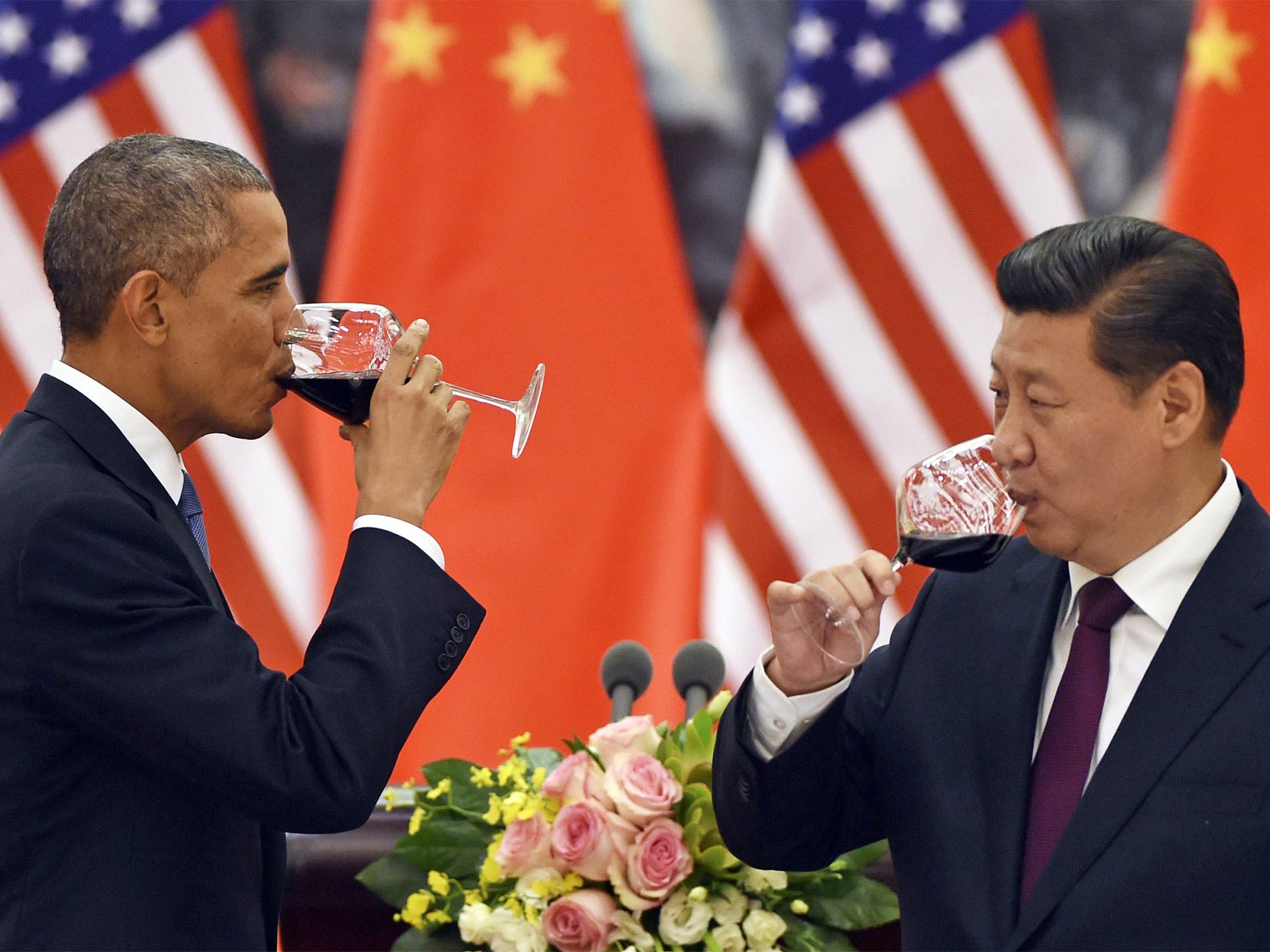Beijing must face down the perils of being big and powerful – or boom may turn to bust
Both in the economic and the diplomatic spheres, President Xi will need to move cautiously in the coming year


President Xi Jinping came in like a lion, but how will he go out? Sitting alongside Prime Minister Li Keqiang in Beijing’s Great Hall of the People yesterday for the opening of the annual session of China’s rubber-stamp parliament, he wore his customary fed-up and mildly exasperated expression – and Mr Li’s speech gave him rather more than the customary cause for it.
His bad news was that China’s economic growth next year will be 7 per cent – or “around” that figure. If that doesn’t sound reason for gnashing of teeth, bear in mind that China’s growth last year missed its 7.5 per cent target by 0.1 per cent, recording the lowest figure for 24 years. Now the world’s second largest economy is aiming significantly lower than that, and Mr Li was at pains to say that this, or perhaps even less, is now, in his words, the “new normal.”
After three decades of stonking growth, China is running full pelt into all the problems accumulated through the boom years, including massive pollution, deep-rooted corruption, and the domination of the economy by state-owned rust-belt behemoths. China is rapidly sliding down the list of countries where it is cheap to make stuff, as average earnings improve; but despite earnestly seeking, in Mr Li’s words, “innovation-driven development… [to] redouble our efforts to upgrade China from a manufacturer of quantity to one of quality,” so far the achievement in that respect falls far short of the aspiration.
Industrial firms dependent on cosy relations with Party politicians have little incentive to take the sort of risks that produce money-spinning new ideas. China’s roster of technological or design or marketing innovations, as opposed to those diligently retro-engineered or simply poached from the West, is tiny. As Mr Li bluntly put it, “The downward pressure on China’s economy is intensifying. Deep-seated problems in the country’s economic development are becoming more obvious.”
One antidote to the encircling gloom – and President Xi’s favourite gambit since taking power late in 2012 – is to flex the nation’s military muscle, and perhaps to offset Mr Li’s downbeat report it was announced that the People’s Liberation Army will stage a massive display of military strength in September to mark the 70th anniversary of the end of the Second World War. The goose-stepping of the uniformed multitudes should be wondrous to behold, especially as the defence budget is to be increased by some 10 per cent. President Putin is reported to have confirmed his attendance already. One of the parade’s objectives, according to Chinese state media, will be to “frighten” Japan.
Since coming to power Xi has followed a far more assertive and robust course in foreign affairs than his predecessors, aided by the impression he has given of being the first Chinese leader since Mao to enjoy the full support of the PLA. Yet here, as in the economy, China is beginning to encounter the problems and perils of being big and increasingly powerful.
China’s expansive strategy is enshrined in its twin goals of creating both a “maritime Silk Road”, fostering what has been called (by Americans) a “pearl necklace” of hospitable ports all the way to the Middle East; and a “Silk Road Economic Belt”, fulfilling the same function mostly on land.
But bringing such ambitious schemes to fruition requires delicate diplomacy with the countries whose co-operation is required, and delicacy is not, and perhaps never has been, China’s diplomatic forte. When China began aggressively moving to occupy contested islands in the South and East China Seas, its always fraught relations with both Vietnam and Japan hit dangerous new lows. And today its new best pal in the region, Sri Lanka, where China has built a (largely pointless) airport and several motorways, is looking far less reliable now that its autocratic ally Mahinda Rajapaksa, has been booted out of office; the man who beat him, Maithripala Sirisena, has just put the massive planned port city that Rajapaksa had signed the Chinese up for – estimated cost $1.5bn – on hold.
Burma is another crucial component of China’s plans to improve its global network, but there too new problems have sprung up. The Silk Road Economic Belt is meant to enter Burma from Yunnan State, in China’s south-west, and exit Burma from a new port city on the west coast. But the return of a veteran ethnic Chinese guerrilla leader to the Kokang region, on the Burma-Yunnan border, has inflamed a dormant insurgency there, bringing the Burmese ugly and indeed frightening reminders of the China-backed communist insurgency that Burma struggled for many years to contain. China denies any responsibility for the new outbreak of fighting, which has prompted 20,000 civilians to flee. But the fact that Burma’s army is enjoying its first burst of popular support since about 1948 speaks for itself.
Like Japan in the aftermath of the Second World War, China is learning the hard way that, in the words of the old Fleetwood Mac song: “You can’t beat people up and have them say I love you.” And while China dominated its region for centuries by sheer scale, it’s not that simple any more. Both in the economic and the diplomatic spheres, President Xi will need to move cautiously in the coming year, and if his problems turn out to be no worse than his Prime Minister suggested, he may consider himself fortunate. Fingers crossed he does not preside over the great Chinese bust, as some commentators are grimly predicting.
Join our commenting forum
Join thought-provoking conversations, follow other Independent readers and see their replies
Comments
Bookmark popover
Removed from bookmarks